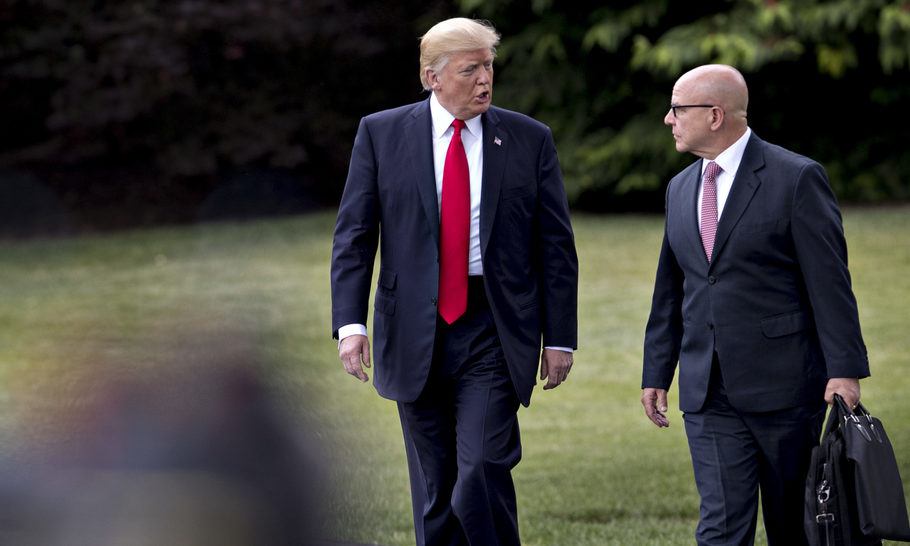Trump was dealt a mixed hand in the midterms. How will he play it?

Andrew Harrer/Bloomberg via Getty Images
The months leading up to this week’s much-anticipated midterm elections in the US were psychologically draining as political argument ratcheted up to ever more feverish and vicious levels.
President Donald Trump has a talent for unlocking the nastiest instincts within people and he flew across the country in Airforce One relentlessly stirring up fears and prejudices among the hardcore Republican electorate that propelled him to an unexpected victory in 2016.
With both the lower chamber of Congress, the House of Representatives, and the upper Senate in Republican hands, Trump had got used to riding roughshod over the Democrat opposition, insulting and demonising his political rivals in the manner of a Third World tinpot dictator.
In fact Trump has often voiced his admiration for brutal dictators like Russia’s President Vladimir Putin, Korean leader Kim Jong Un and Philippines President Rodrigo Duterte. In line with that he is intolerant of any criticism and has branded journalists as “enemies of the people”.
Most of the polls predicted that the democrats would wrest control of the House of Representatives from the Republicans and many tipped the Democrats to gain a majority in the Senate, where Republicans had a wafer-thin 51-49 margin.
The Democrats did make gains but the massive “blue wave” (in the US red is the colour of the conservative Republican Party while blue signifies the more left-leaning Democrats) many pollsters had predicted and many Democrats had craved, failed to emerge.
Instead it was more like a gentle swell that tipped the 435-seat House to Democrat control with a 27 -strong majority there and allowed the Republicans to retain control of the Senate with three or four more senators – the votes in some very close races still being counted Wednesday night.
Both parties expended massive resources and huge sums of advertising money to encourage as many of their supporters to come out as possible and the turnout has set records for midterms, which, like British by-elections, traditionally inspire less excitement than the “real” presidential elections.
Trump concentrated on the emotive issue of illegal immigration. A propaganda godsend for him is the fact that thousands of immigrants from Latin America are actually marching through Mexico toward America’s southern border with the avowed intention of breaking through and demanding asylum.
Trump whipped up fears that such immigrants would sweep in with them criminals and terrorists. And although the marchers are still weeks from reaching the US, Trump ordered thousands of troops to the border to heighten his portrayal of an impending invasion.
He also exploited the indignation many felt at the treatment of Trump-nominated Supreme Court nominee Brett Kavanaugh. During his Senate nomination process, a woman from Kavanaugh’s past accused him of sexually assaulting her when both were at high school.
Although the accuser seemed credible there was no evidence the attack happened and Kavanuagh’s nomination passed. But many were appalled that a man with a hitherto apparently spotless record was so publicly and painfully humiliated in front of his wife and children because of an unsubstantiated, decades-old allegation.
The anger at Kavanaugh’s treatment measurably boosted the Republican vote. Pollsters say around a fifth of total Republican voters were white evangelical Christians who support Kavanaugh’s anti-abortion stand.
Although many Americans hoped that breaking the Republican’s monopoly on power would lead to more conciliatory attitudes, the very election process with its torrent of hatred and undertones of racism has deepened the virulent divisions cleaving American society.
That shouldn’t come as a surprise because throughout his presidency Trump has not made serious attempts to portray himself as the leader of all Americans. Instead he has self-defined himself as a “nationalist” and the champion of his core, mostly white, non-college-educated, rural supporters in an apocalyptic struggle against Democrats he accuses of encouraging illegal immigrants and giving succor to drug-runners and terrorists.
Many Democrat voters would like to see their party immediately instigate impeachment proceedings against Trump and to hobble all his initiatives until the next presidential elections in 2020. The democrats now have more strength to protect Robert Mueller, the special counsel investigating possible Trump-Russia collusion. And they are likely to re-open and broaden their own House investigations into the alleged links, which the previous Republican-dominated Intelligence Committee shelved.
Part of such an investigation could include subpoenas for Trump’s tax declarations which he has refused to make public and the very mention of such a possibility enrages Trump.
Democrat leaders though are reluctant to be seen as solely interested in negative actions to cripple the presidency or at least severely limit Trump’s and the Republican Party’s agendas. They want to deliver improvements in health care and economy so their party has something to tout ahead of the 2020 elections and for that they need some bi-partisan cooperation.
However, Trump seemed to deliberately want to strangle at birth such conciliatory notions. In a combative 90-minute press conference on Wednesday even before all the votes from the previous day’s elections had been counted he warned impeachment or tax subpoenas would make him go to “war” against the Democrats – something he boasted he was better at than them.
Later on Wednesday it emerged that Trump had forced the attorney general, Jeff Sessions, to resign. The president had heaped insults on Sessions for more than a year because he recused himself from the investigation instead of controlling or ending it.
The person Trump has appointed as temporary attorney general has previously publicly declared that he didn’t believe it was justified and suggested it could be ended by shutting off the investigation’s financing.
Trump did not dare to interfere with the investigation when the senate Republican majority was so small. Also some of the Republican senators warned they would prevent interference in the probe. Now that some of the new Republican senators are seen as slavishly loyal to Trump he may be emboldened to try to curb Mueller.




